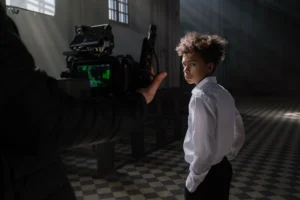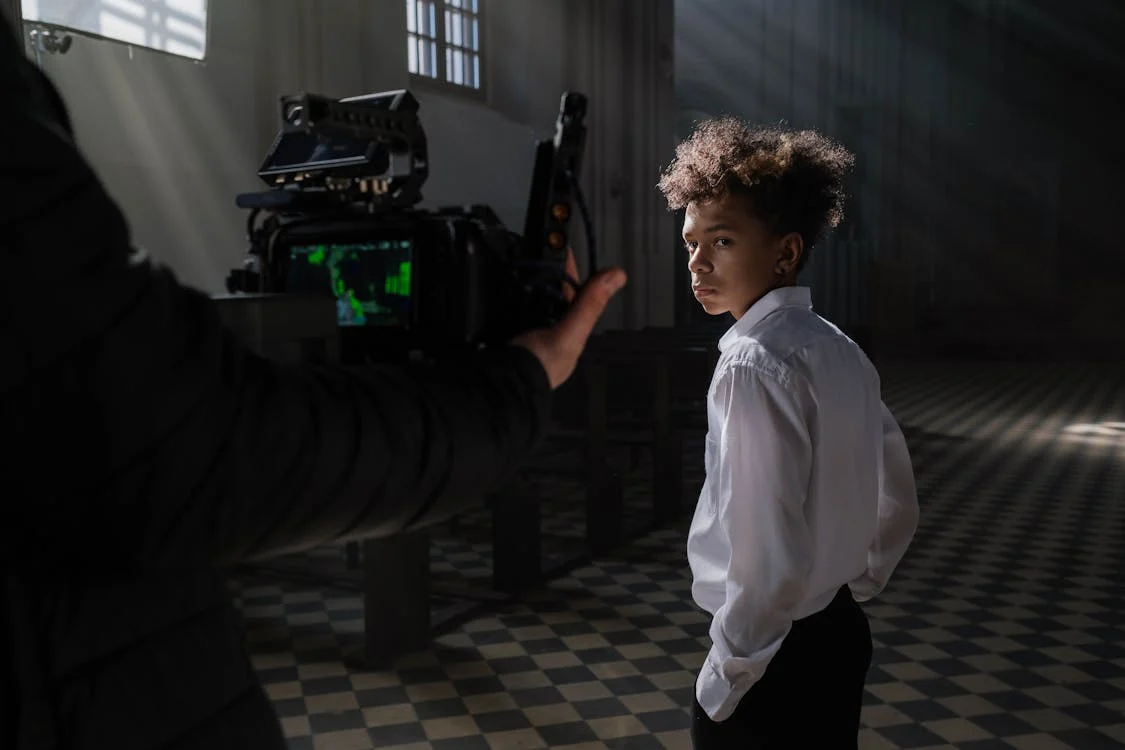How Does Actor Casting Work?

(Photo: Cottonbro Studio | Pexels)
Casting is one of the most crucial steps in the production of a film, TV show, or theater production. It determines which actors will bring the characters to life, and a good casting choice can make or break a project. So, how does actor casting work? The process involves multiple stages, from breaking down the script to auditions and negotiations. In this article, we will take a closer look at how casting works in the entertainment industry, including the role of casting directors, auditions, and the decision-making process.
1. Understanding the Role of a Casting Director
The casting director is the person primarily responsible for choosing the actors for a production. Their job is to understand the script, the director’s vision, and the specific qualities needed for each role. They work closely with producers, directors, and sometimes the writer to ensure that the best talent is selected.
- Breaking Down the Script: The casting director begins by reading the script and breaking it down to understand the characters and their characteristics. They analyze the type of person needed for each role in terms of physical appearance, personality traits, age range, and the character’s backstory. This helps to form a “casting breakdown,” a document outlining the requirements for each character.
- Creating a Casting Call: Based on the casting breakdown, the casting director writes a casting call, which is a description of the roles and the type of actor required. These calls are sent out to agents, talent agencies, and casting websites to solicit submissions.
2. Auditions and Callbacks
Once the casting call is out, actors can submit their headshots and resumes for consideration. If a casting director is interested, they will invite the actor to audition. This is where the actor has the opportunity to demonstrate their talent, fit for the role, and ability to interpret the character.
- Initial Auditions: The first audition, often called a “cold read,” typically involves actors reading lines from the script, either by themselves or with other actors, depending on the setup. Casting directors look for chemistry between actors, their ability to embody the character, and how well they fit the overall vision of the production. In some cases, actors may be asked to read for more than one role if the casting director believes they could be suitable for multiple parts.
- Callbacks: After the initial auditions, the casting director may invite a select group of actors back for callbacks. This is a second round of auditions where the director, producers, or even the writer may be present to give direction and see how the actor adapts. Actors might be asked to perform a specific scene or act out additional material. At this stage, it’s not just about the actor’s ability to perform but also their compatibility with the director’s vision and other actors in the cast.
- Chemistry Reads: If the character requires strong chemistry with another role, the casting director may set up chemistry reads, where the two actors audition together to see how they work off one another. This is especially important for lead roles in romantic comedies, dramas, or films that depend heavily on relationships.
3. The Decision-Making Process
Once the auditions and callbacks are complete, the casting director compiles their notes and submits a list of top choices for the role to the producers and director. This is where the decision-making process becomes more collaborative. Producers and directors evaluate the final options based on several factors.
- Fit for the Role: First and foremost, the decision hinges on how well the actor fits the character. Are they believable in the role? Do they bring something unique to the character that aligns with the creative vision of the project?
- Star Power and Experience: While an actor’s talent is always the primary consideration, their previous experience or “star power” can influence the casting process, especially for larger budget productions. Well-known actors or those with significant following can be an asset for marketing purposes or to draw attention to the project. However, in many cases, the director and producers prioritize the actor who best represents the character, even if they are less established.
- Chemistry with Other Actors: In ensemble pieces or projects requiring strong relationships between characters, the chemistry between actors is a crucial factor. Casting directors and producers will assess how well the actors work together and whether they can portray a convincing relationship.
- Logistical Considerations: Practical matters also play a role in casting decisions. These include availability, whether the actor can fit into the production schedule, and whether there are any potential conflicts with other projects the actor is involved in. Negotiations about pay and contract terms may also affect the final decision.
4. Negotiations and Offers
Once a casting decision has been made, the chosen actor or their agent is contacted with an official offer. At this point, contract negotiations begin. The actor’s agent will work with the producers and the casting director to agree on compensation, working conditions, and other contractual obligations such as filming dates and promotional commitments.
- Contract Terms: The contract might include the number of episodes or films the actor is required to work on, salary, royalties, and benefits such as travel or accommodations. Negotiations can also include perks like stunt doubles or specific clauses for long-term commitments, especially in the case of TV series or franchises.
- The Actor’s Decision: After the terms are discussed, the actor has the opportunity to accept or decline the offer. Once an agreement is reached, the actor officially joins the production.
5. Casting for TV vs. Film vs. Theater
While the general process of casting remains the same, there are some key differences when it comes to casting for TV shows, films, and theater productions.
- Film Casting: Casting for films typically involves a higher level of competition for top roles, and the process often takes longer due to the significant investment and planning that go into each project. Filmmakers may cast an actor based on their previous performances or star power, and the project often has a more extensive casting team, including a casting director, associate directors, and even consultants.
- TV Casting: TV shows, especially those that are episodic, may cast actors based on their ability to maintain a character over multiple seasons. A TV casting process is typically faster than for films since the production timeline is more compressed, and actors may be required for an ongoing schedule.
- Theater Casting: For theater, the casting process is often more direct and involves live auditions. The director will want to see actors perform live, often in front of an audience or in a rehearsal setting, to gauge their performance skills and stage presence. Theater casting can sometimes include more ensemble-oriented decisions since chemistry between the actors is important for live performances.
Conclusion
Casting is a complex, multifaceted process that involves not only evaluating an actor’s talent but also considering their fit within the production as a whole. From initial auditions and callbacks to final negotiations, casting requires careful consideration to bring the right actors into a project. Casting directors, producers, and directors all work together to ensure that each role is filled by the person who can best bring the character to life. Whether it’s a small indie film or a large blockbuster, the casting process is essential to the success of any project, and it is through this collaborative effort that the most memorable characters are born.




